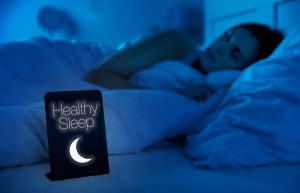What is Sleep Hygiene and Why is it Important?
A good night’s sleep is something that everyone deserves, it is important for allowing neurons to rest and for consolidating long-term memories.
However, many people struggle to create an environment which affords the best opportunities for quality sleep.
Understanding what sleep hygiene is and how best to manage it can help to ease sleeping troubles.

Melatonin is known as the ‘hormone of darkness’ due to the pineal glands’ increased production of it in darker environments – however many of our behaviours can affect its production.
In some cases of insomnia, artificial melatonin tablets can be prescribed as a short-term solution. But it is important to learn with the right strategies,you can manage and encourage natural melatonin production to help you sleep.
Stick To a Routine
Creating and sticking to a routine is one of the keys to good sleep hygiene, as it nurtures the natural rhythms of your sleep-wake cycle, increasing the chance of full and effective sleep.
Waking up and going to bed around the same time every night may seem like a hassle. But it allows your internal clock to learn when in its 24-hour cycle to release melatonin in order to make you feel tired.
Light is Important
If you’ve ever wondered why people say not to use your phone before bed, or heard people talking about blue light having negative effects on sleep, it is because these things interfere with the dark (which is a cue for melatonin to be secreted).
Sleep cycles are influenced by a network of structures and mechanisms which, amongst other things, monitor light levels and modulate the release of hormones within the brain.
Beginning to lower light levels and use blue light filters on screens as it gets dark, can help to increase the all important melatonin levels.
Avoid Caffeinated Drinks in the Evening
Caffeine acts as an antagonist to adenosine which is a natural substance important for sleep regulation, hence it makes you feel less tired.
Whilst there is limited evidence that suggests caffeine distrupts the quality of your sleep, it can certainly make falling asleep harder.
This is due to the effect caffeine on the adrenal gland, leading to increased cortisol (the stress hormone) secretion. Cortisol has the opposite effect of melatonin which hinders your ability to fall asleep.
Sleep Shouldn’t Be a Chore
Sleeping should never feel like a chore. If you’re not enjoying the feeling of being able to rest then you’ll probably have a harder time falling asleep.
Implementing these tips can greatly increase your sleep hygiene, and allow you to enjoy falling asleep.

